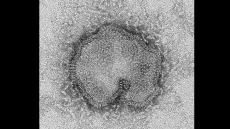A hormone known for stimulating milk production in nursing mothers also promotes love making between parents, says a new research.
The results published in the online journal PLoS One found a link between prolactin levels and sexual activity and cuddling among partners.
The study relied on hormone analyses of urine from cotton-top tamarins, a small, endangered monkey native to Colombia. They live in monogamous family groups where both parents help care for the young, which is similar to humans.
Prolactin levels were high among pairs that frequently had sex and cuddled, the findings showed.
"When you look at mothers who had lower prolactin, they had less sex with their partners," said first author Charles Snowdon, emeritus professor of psychology at University of Wisconsin-Madison in the US.
Although this was a first for prolactin, another hormone oxytocin that stimulates childbirth was previously linked to a range of pleasurable emotions.
The discovery in other studies of high prolactin levels among males who care for infants (in humans and other primates) made prolactin seem likely to be causing the parenting behaviour.
But the researchers of the new study believe that prolactin may be a result of parenting instead.
"Maybe it is not serving as a mechanism to drive parental care, but it is a consequence, a reward for parental care," Snowdon noted.
The idea that prolactin and oxytocin may supply rewards was reinforced by a German study that found a burst of both hormones when men and women reached orgasm while making love.
"This suggested to me that prolactin may, among other things, function as a reward mechanism for sex," Snowdon noted.





